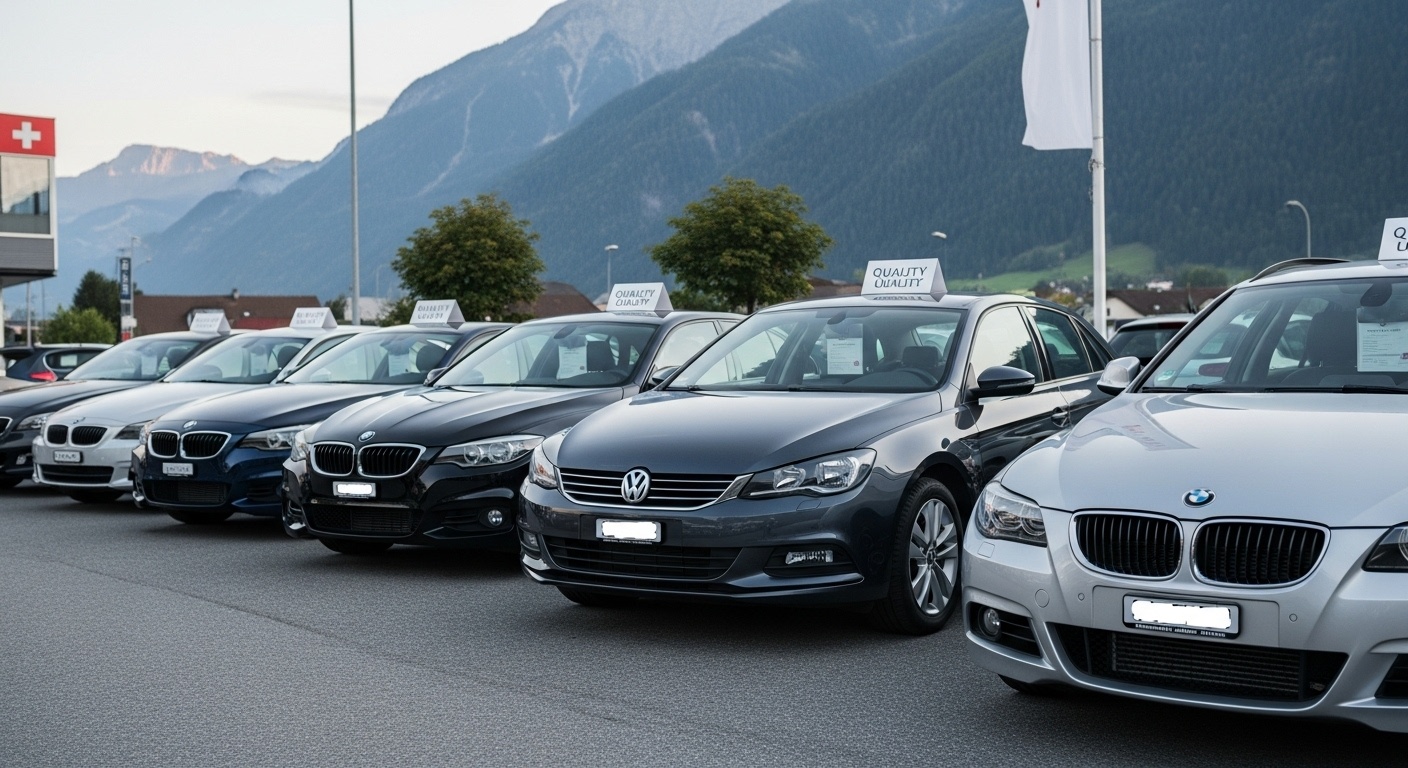Car tax in Switzerland is a topic that regularly sparks heated discussions. While many Europeans believe Switzerland to be a homogeneous country with a uniform tax system, the reality is quite different: a patchwork of cantonal regulations that significantly impact used cars. These varying tax approaches lead to striking differences, making car purchases a cantonal chess game.
Different Cantonal Tax Approaches
Each canton in Switzerland has its own method for calculating car tax, resulting in a maze of regulations. In Zurich, for example, cars are taxed based on engine capacity, while in the Canton of Bern, vehicle weight is decisive. The Canton of Geneva even uses a combination of both, which regularly frustrates car buyers in the region.
A recent study shows that taxes on used cars in Zurich can vary between 300 and 500 CHF per year, depending on the vehicle model. In Bern, however, it is not uncommon to pay over 600 CHF for an older and heavier vehicle. A friend from Lucerne recently told me how he managed to reduce his tax burden by almost 200 CHF per year when moving to the Canton of Schwyz, simply because the system there is different. Surprisingly, these differences apply not only to new cars but also to used cars, which is often overlooked in calculations.
How Cantons Influence Vehicle Choice
The cantonal differences in car tax not only affect costs but also significantly influence the vehicle choices of the Swiss. In regions with higher tax burdens for high-performance vehicles, people tend to prefer smaller and more economical cars. This is particularly true in urban areas, where parking space is expensive and larger vehicles cost more.
In the Canton of Basel-Stadt, it is not uncommon for city dwellers to switch to smaller hybrid vehicles to minimize the tax burden. In more rural areas like the Canton of Uri, however, larger vehicles are still preferred despite higher taxes, as the infrastructure and off-road driving make them necessary. It is fascinating to observe how local tax regulations directly influence automotive culture.
What Buyers of Used Cars Should Know
Anyone looking to buy a used car in Switzerland should consider more than just the vehicle’s condition and price. Cantonal taxes can have a significant impact on the annual maintenance costs of a vehicle. Some cantonal regulations offer discounts for environmentally friendly vehicles, while others favor vintage cars, leading to interesting niche markets.
Comprehensive research is essential: using online calculators or even consulting experts can help understand the actual costs of buying a used car. It is also advisable to consider the cantonal differences in the vehicle inspection (MFK), as some cantons have stricter requirements and thus higher costs.
Tax Incentives and Environmental Policy
Another intriguing aspect is the integration of environmental policy measures into cantonal tax systems. While the Canton of Vaud offers substantial discounts for electric vehicles, other cantons, like Ticino, have created few incentives in this direction, giving the impression that the political promotion of electromobility varies greatly by region.
However, there are also controversial debates about whether such incentives actually contribute to environmental protection or merely manipulate consumer behavior. Some critics argue that subsidizing electric cars merely shifts the environmental burden by promoting the production of these vehicles, which often occurs in other countries.
Conclusion
The cantonal regulations on car tax in Switzerland are a complex web of rules that have far more than just financial implications. They shape automotive culture and determine which vehicles are preferred in which regions. For buyers of used cars, it is essential to have a clear understanding of the cantonal differences to avoid falling into a tax trap. The choice of residence can be just as crucial as the choice of vehicle itself.
Ultimately, the question remains whether the cantonal differences are a remnant of traditional autonomy or whether they should give way to a modern, unified tax policy. One thing is certain: the discussion will accompany us for a long time as mobility continues to evolve.
